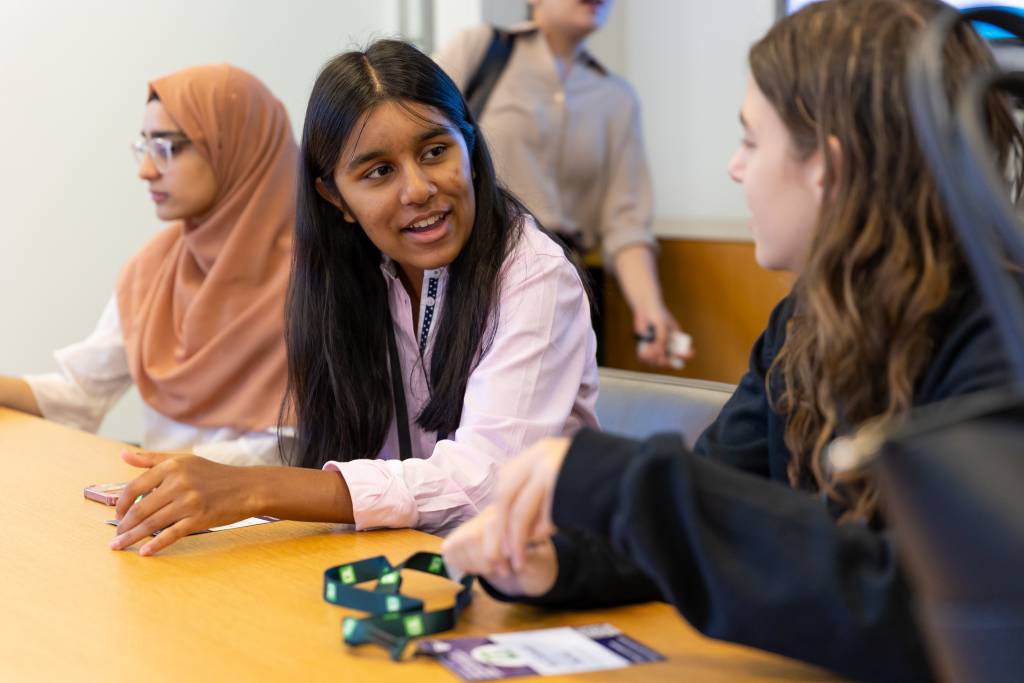
The UK Government’s Modern Industrial Strategy outlines a bold and ambitious vision for driving innovation, sustainable growth, and scientific leadership across key future-focused sectors such as advanced manufacturing, artificial intelligence, clean energy, and life sciences. At Stemettes, we welcome this direction and the long-term commitment to making Britain a global hub for science, technology, engineering, the arts, and mathematics (STEAM).
However, if this strategy is to deliver on its promise truly, it must be far more intentional and far more urgent about inclusion. Unlocking the UK’s full innovative potential is impossible without engaging the whole population, especially those currently overlooked. Women and non-binary people remain underrepresented in STEAM sectors, and without bold action at a younger age, we risk wasting a vast pool of untapped talent.
From a purely economic perspective, this is short-sighted. We are losing out on creativity, insight, and innovation by failing to provide meaningful support to the next generation in these critical sectors. Diversity isn’t just a moral imperative, it’s a business case. We cannot build a modern industrial future by sticking to outdated approaches that continue to exclude half the population from seeing themselves as part of the STEAM future from a young age.
We’re pleased to see the government highlight workforce diversity and investment in technical education, including the £275 million boost for apprenticeships. But this focus comes far too late in the pipeline. Apprenticeships are not taken up in sufficient numbers by underrepresented groups and require significant wraparound support that currently isn’t being offered at scale. When speaking with our young people about their experiences of apprenticeships, many described them as outdated and difficult to access, stating: ‘‘I think apprenticeships are hard to access, I think the interview process, the salary, and the work process itself is set up to favour certain groups”. Others highlighted the issue of performative inclusion within the sector and feeling like they are only being hired to meet a diversity quota, “I think they are a great alternative to university but need a major shift to ensure that inequalities within them aren’t being swept under the rug”. If we are serious about retaining a competitive edge in these emerging sectorsrather than focusing solely on apprenticeships, we need to create a pipeline of talent that can meet the skills demand of the next few decades.
From our work with young women and non-binary folk, we know that early years are where confidence is formed, stereotypes take root, and career aspirations are either nurtured or lost. Without intervention during primary school age and ongoing support, we cannot hope to address the gender imbalance seen later in engineering, computing, and other STEAM-related fields.
We aim to inspire and support girls, young women, and non-binary people into impactful STEAM careers. We’ve worked with thousands of schools across the UK, and we are ready to work with many more. Through our in-school and industry hackathons, mentoring schemes like Student to Stemette, and our in-person events, we offer hands-on experiences that raise aspirations and deliver results. But grassroots initiatives like ours are still chronically underfunded and too often treated as side projects, rather than central to a successful industrial strategy.
We urge the government to take the following steps if it is serious about creating prosperity, greater skills and establishing new industry in the UK:
- Start early and start intentionally: Embed gender-inclusive practices into the national curriculum and careers guidance. We need consistent and long-term investment in early STEAM outreach, starting at age five, to shift mindsets and build confidence before stereotypes take hold.
- Celebrate and integrate the ‘A’ in STEAM: Stemettes added the ‘A’ to STEM in 2021 to highlight the vital role that skills such as innovation, critical thinking, collaboration and creative problem solving have in underpinning traditional STEM fields. Including the ‘A’ not only increases engagement but helps dismantle assumptions about who belongs in STEM, offering a more inclusive entry point for underrepresented groups.
- Highlight relatable, diverse, and achievable role models: Representation matters. Our Curriculum Reform Whitepaper shows the importance of young people seeing role models that look like them and share their backgrounds succeeding in STEAM. Diverse and realistic role models, across class, gender, race and ability, help young people see that STEAM isn’t just for a select few, but for everyone.
We also urge the government to engage with existing research and proposals in this area. The Stemettes Curriculum Reform White Paper (PDF) outlines practical recommendations for integrating intentional inclusion throughout formal STEAM education. These are the kinds of systemic changes required to unlock future talent.
In conclusion, whilst the Industrial Strategy marks a step in the right direction, it lacks the urgency and depth needed to create a truly inclusive and future-ready workforce. To truly unlock our collective potential, government must be more intentional about inclusion. If the UK want to lead the world in innovation, the government must invest now in the young people, starting from age five, who will drive that future. With the right policies, partnerships, and priorities, we can ensure that every young person, regardless of gender or background, has the chance to belong, contribute, and lead in STEAM.



